Trifoi Fest 2021 was the first edition of an environmental festival for producers, consumers and other stakeholders sharing a common dream: living better with less. It was a sustainable marketplace for goods and services crafted according to the festival’s six core values: circular, local, organic, vegan, ethical, resilient (CLOVER). It also provided a space for debates on topics such as: waste management, collapse and degrowth.
In 2021, we organised the first edition of a festival named Trifoi Fest (Clover Fest). Trifoi Fest is an environmental festival for producers, consumers, activists, decision makers and other stakeholders sharing a common dream: living better with less. It promoted sustainable production and consumption, mainly focused on a circular economy mind-set.
During the festival, the producers provided goods and services that have been crafted with an ecological design in mind (according to the principles of circular economy and of cradle-to-cradle design). The consumers had access to: food items, self-care and cleaning products, clothing and accessories, furniture and decorative objects, but also services enabling them to lower their ecological footprint while covering their basic needs: food, care, energy, transportation, shelter. The participants could also take part in debates on topics such as: waste management, environmental activism, degrowth, environmental collapse.
The festival was built around the 6 main CLOVER values:
- Circular (durable or biodegradable, modular and repairable, low waste or upcycled)
- Local (produced as close of the end consumer and as seasonal as possible)
- Organic (without pesticides or other chemicals harming the environment)
- Vegan (with respect for all non-human animals, from an anti-speciism approach)
- Ethical (social justice and wellbeing for everyone involved in the life cycles)
- Resilient (adaptability to multiple ecological crises: water, energy, resources, biodiversity, climate change)
The long-term goal of this festival is to gather the community able to set up a hybrid (multi-stakeholder) cooperative around these values, as a tool to ensure a more just collapse and offer a post-capitalist degrowth alternative to the way we live in and govern societies.
Please highlight how the project can be exemplary in this context
The circular aspect of Trifoi Fest 2021 was reflected at two different levels: the festival’s content and its implementation.
Trifoi Fest 2021 brought together eco-designers for whom sustainability is crucial. We have invited craftsmen working with reclaimed wood (Wood be nice), using wood instead of plastic (I WOOD BE, twigs and barks) or giving a new life to old furniture (Mara cu noroc); social enterprises working with organic textiles (Atelier Merci, Atelierul de pânză) or upcycling leftover textiles into new fashion products (REDU); a local business upcycling glass (Stycle); a social enterprise (Ateliere fără frontiere) turning banners into new products (remesh), obsolete equipment into functional electronics for disadvantaged communities (educlick) and producing organic vegetables in a marginalised community (bio&co). And these are just a few of the selected vendors. Along with the products and services they offered, some of them also organised workshops, teaching participants skills for a circular economy model.
Besides the festival’s content, we have also integrated sustainability into the implementation. We tried to reduce the festival’s impact and avoid generating waste. All the organic waste was turned into compost, we sorted out the recyclable waste which was collected by an authorised cargo-bike collector (Recicleta). We have encouraged people to bring their own cutlery, plates and glasses and we have set up a manual dishwashing area for them. We have provided filtered water free of charge to everyone, thus also avoiding the production of PET water bottles. Also, by only providing vegan food, we have significantly lowered our carbon footprint. We encouraged participants to come by bike or by public transport. Nonetheless, we have avoided fossil fuel generators and we have offset the emissions associated with energy consumption, through a reforestation project.
Please highlight how the project can be exemplary in this context
We believe that, in order to facilitate the transition to a more circular and collaborative economy, the products and services offered to the public should be attractive and affordable. That is why aesthetics played a great role in organising Trifoi Fest 2021.
On one hand, we focused on creating a welcoming and harmonious space for the festival’s location. We have chosen to organise the festival in a public park located in a cultural heritage protected area. The park has been degrading in the past years due to the authorities inaction and inappropriate interventions, which caused great dissatisfaction among the surrounding community members. For Trifoi Fest 2021, we decided to bring the park to life, through minimal and natural interventions. We used natural materials, such as wood, straw and cotton. We have turned straw ballots and traditionally woven carpets into chairs, we have crafted ottoman pillows out of scrap materials and an old cotton mattress, we have repurposed used wooden pallets to create the event’s signlasitics, and we have coloured the park with vivid hammocks.
On the other hand, we selected the vendors who offered high quality ecological products and services, crafted with a beautiful and functional design in mind. Most of the objects are unique, as working with scrap materials, for example, makes you adapt to whatever resources you have, and, similar to the natural world, you rarely have the same shape, texture or pattern. We have also paid attention to avoid promoting upcycled products created for the sake of recycling, but ending up in the landfills due to poor aesthetics or inutility.
Thus, the vendors’ creative set-ups, together with the festival’s inviting set-up have created the perfect environment for deep connections and interactions to take place.
Please highlight how the project can be exemplary in this context
We intended to create a collaborative event. Thus, Trifoi Fest 2021 was co-created together with vendors, volunteers, the local community and encouraged the participation of diverse citizens, irrespective of race, ethnicity, nationality, gender, sexual orientation, abilities, marital status, class, cast, religion, political views or any other beliefs.
In order to generate the festival’s content, we have engaged with vendors to see what kind of activities they could offer to the public. Thus, several organised workshops, teaching participants new creative skills: vegan cooking, DIY natural cosmetics, sewing, restoration of old furniture, manual paper recycling, natural textile dyeing, bike repairing etc. All these activities encouraged citizens to regain knowledge on how to provide alternative basic items for themselves, in order to have a more sustainable, independent and creative way of living.
Along with co-design, we also had in mind some universal design principles: we tried to make the festival accessible for citizens regardless of their age, gender, abilities or wages. We ensured equal gender representation among the debates’ speakers. We organised several activities for children, and seniors were also included through the nature of the location, situated in a historical area of the city. Moreover, we granted easy access for people with physical disabilities, as all the main entrance points were wheelchair-friendly. Last but not least, there was no entrance tax to the festival, for both the vendors, who are seldom struggling financially to keep their businesses running, and for the general public, whose financial status should not be an impediment to having access to sustainability tools. Moreover, we also provided free filtered water and affordable vegan food, for everyone to be able to satisfy basic human needs. Also, by only selling vegan products, we ensure that inclusiveness goes beyond our species and protects the rights of animals and nature.
Please highlight how this approach can be exemplary
Intersectional environmentalism is a key concept governing all our initiatives. It is also reflected in the principles that Trifoi Fest was built upon. We are motivated by both environmental values, such as circularity and resilience, and social values, such as ethical behaviour and justice for other human beings and non-human animals. Therefore, we think sustainability and inclusiveness cannot be separated. In practical terms, this was reflected in the choices we made: we chose to provide only vegan items in order to respect both animal dignity and nature; we ensured a balanced gender representation during debates; we adapted the activities to the local community needs, making sure we are integrating children and seniors and, at the same time, not bothering the neighbours.
The way aesthetics was combined with the other two dimensions was rather implicit. As we already mentioned, we have selected only vendors offering high quality beautiful ecological products, in order to prove that the transition to a more circular and sustainable economy does not mean sacrificing one’s needs or desires, including the desire for beautiful design.
Trifoi Fest 2021 has turned out to be a great success, proving that such an initiative was necessary for both producers and consumers. We had 30 vendors and 11 workshops, 5 debates and 11 speakers, and around 1300 citizens participating at the first edition of Trifoi Fest. The event was covered in 46 press articles, both before and after it happened.
But along with the numbers, we have the feedback of the people who participated in the event. They have shown great appreciation for the atmosphere and the sense of belonging to a community that has been created around the festival’s six main values.
- “We met people who really cared and wanted to help; they were interested in our mission, which was great. There was a specific feeling that everything was fine, that we belonged to a community.” (Mihaela Budescu, Workshops Without Borders)
- “The visitors were charmed by the simplicity, the candour, and the beauty of the event you created and that we made come true, together.” (Andreea Sârbu, volunteer)
- “Saturday’s dynamic put smiles on our faces… We loved everything, from the members of the crew, to the exhibitors and the visitors. There was a very cool vibe, which we have never felt at any other festival in Bucharest.” (Luisa Tronea, LAILUI)
- “I felt really good. That place became an oasis of light.” (Maximilian Dobrescu, visitor)
- “From the depths of my heart, I confess it has been the most beautiful festival that I have ever attended.” (Lucian Buhoci, The Lavender House)
The impact and atmosphere is best captured in event's after-movie: https://www.youtube.com/watch?v=V67fsBPlmx0&t=9s.
The appreciation was later reflected in the expressed intention to participate in the second edition of Trifoi Fest and make future events even more collaborative than the first one. The final purpose of Trifoi Fest would be to set up a hybrid cooperative to support local circular economy initiatives and facilitate access to a sustainable lifestyle to more citizens.
Please also explain the benefits that derived from their involvement.
The involvement of the civil society was twofold: through volunteering and participatory debates.
We have managed to organise the event with the help of more than 20 volunteers. They were involved in activities such as: design and implementation of the location set-up, creative messages and the event’s signalistics; recyclable waste and compost management; logistic and technical issues; communication and networking.
We have also involved the local community and other citizens who came especially to attend Trifoi Fest, even from different cities. Together with the workshops, we have organised 5 debates and we have encouraged the audience to ask questions and find solutions to different environmental problems that they are faced with.
The infinite growth society that we have created is definitely not sustainable on a planet with finite resources. The western way of living is leading to climate change, biodiversity loss and might eventually lead to ecological and societal collapse. There is no doubt we have to change the way we produce and consume resources and challenge the mindset that has brought us here. We dare to imagine and act to enable the transition towards a post-growth collaborative and inclusive society. In this mission, Trifoi Fest is just a tool. It is a tool showing how circular economy and degrowth production models and consumption patterns work on a small scale, with the potential of being replicated and thus increasing the impact.
Trifoi Fest brought together small artisans and entrepreneurs struggling to keep their business running despite the unfair competition of large-scale production units that are wrecking the environment with pollution and exploiting low-paid unprotected workers, without ever paying the real cost of their actions. Seen from this perspective, the vendors’ activities become more than sustainable business models. They become forms of resistance against a system endangering the natural world and our entire civilization.
Along with promoting the work of alternative production and consumption models, Trifoi Fest also offered an example of how to organise a low-impact event. As far as we know, in Romania, no other festival has ever had such a holistic approach towards protecting the environment and other living species. We hope to inspire event organisers to attempt similar or even more brave initiatives.
The main point of difference that Trifoi Fest had was that the festival was created around the six main values, which were reflected in both the selection process of vendors and the way the event was implemented.
Mainstream festivals have a huge negative environmental impact. We have estimated the daily ecological footprint of a person attending one mainstream festival. It turns out the food and beverages one consumes generate 7385 grams of CO₂eq and biodiversity loss that could not be calculated; one person uses no less than 50 litres of water and 75 for showers daily if the event is spanned on multiple days; energy consumption and transportation within towns produce an additional 5kg of CO₂eq per person; and approximately 10 items of packaging waste and 200 grams of food waste generally end up in landfills.
At Trifoi Fest, we tried to prove that another way was possible. We ensured a very low carbon footprint from the very start by only selecting vendors with vegan products. Then, we also focused on waste prevention and reduction. We have invited producers that are repurposing scrap materials that would otherwise be wasted and have ensured that the festival’s own waste production was limited to the maximum. We had food waste collection bins and have later turned the bio-waste into compost. We have also prohibited vendors from selling products in plastic packaging, allowing only compostable cardboard, recyclable glass or paper packaging. By providing free filtered water we have avoided the generation of additional plastic bottles and we have taken a stance against the privatisation of a basic resource that should always be free for everyone.
All these different approaches and decisions made Trifoi Fest unique on the Romanian festivals market.
Please provide clear documentation, communication of methodology and principles in this context.
We would encourage any other event organiser to adopt the principles that guided us when creating Trifoi Fest. Moreover, we would be more than happy to provide advice for implementing the solutions that we have adopted and recommendations on what could be even further improved to avoid the challenges we had. Here are some basic suggestions:
- Find a location that has access to electricity, in order to avoid combustion generators
- Find a location that is easily accessible by public transport, to avoid the use of personal cars
- Only provide vegan food and other products, to cut the carbon footprint and fight against speciism
- Encourage local, organic, seasonal and circular products as much as possible
- Engage with vendors as soon as possible, in order to clearly communicate your requests and to co-create the event’s content
- Find innovative ways to prevent waste generation in the first place
- Provide a separate collection of unavoidable biowaste and recyclable waste. Make sure they end up in the right composting or recycling facilities
- Communicate in advance with the participants the tools you are putting at their disposal in order to lower the festival’s footprint and what they are expected to do
- Have clear and bold communication of the festival’s principles and ways of lowering the impact, for the participants that did not find out in advance
- Invite local authorities that have the power and resources to implement the ecological solutions that you are promoting at a much greater scale.
We believe that the measures we have implemented can be adopted more or less in any context or location. We hope that soon enough this way of organising events becomes the norm and not the exception.
Please see the attached pdf
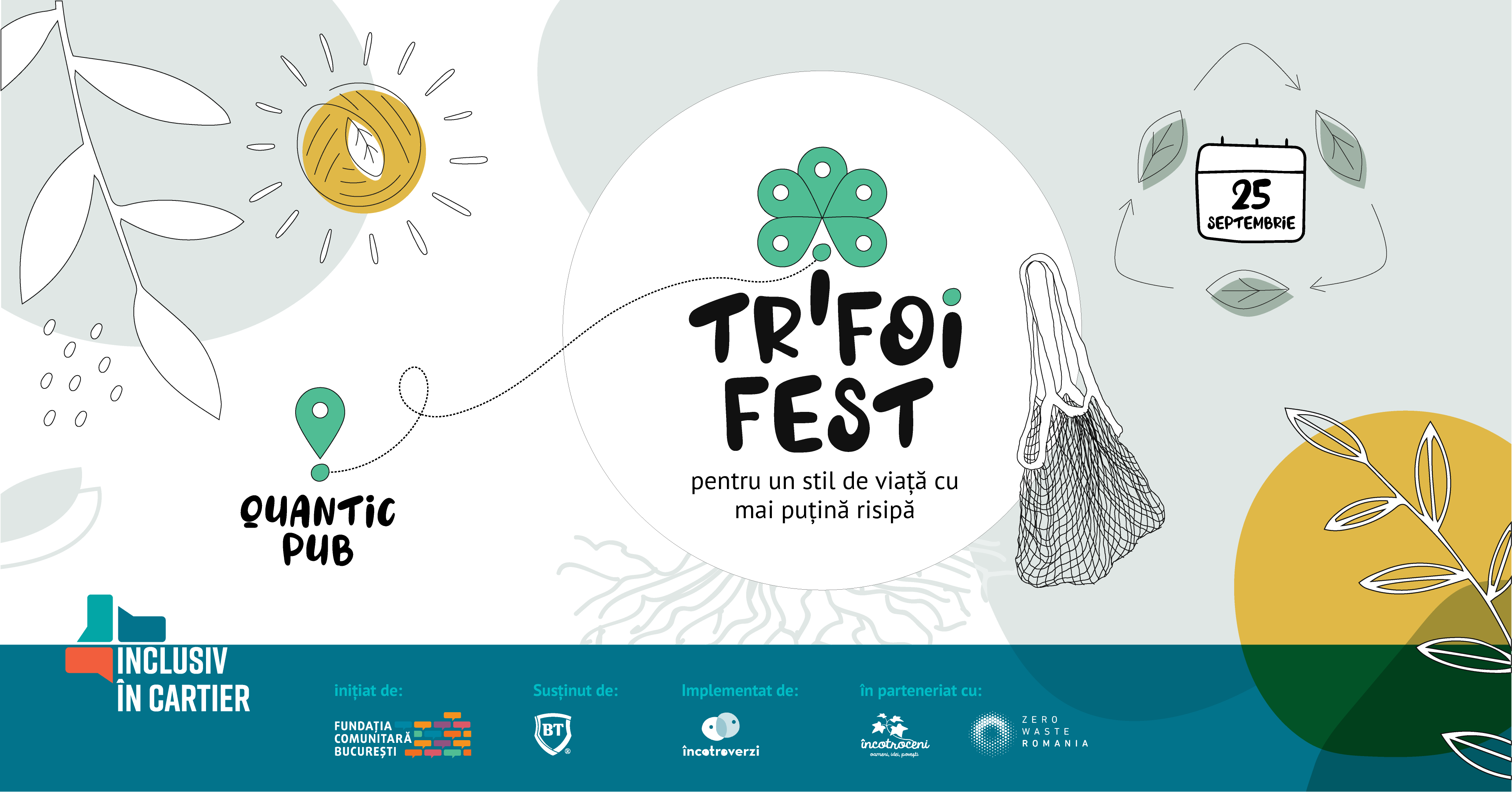
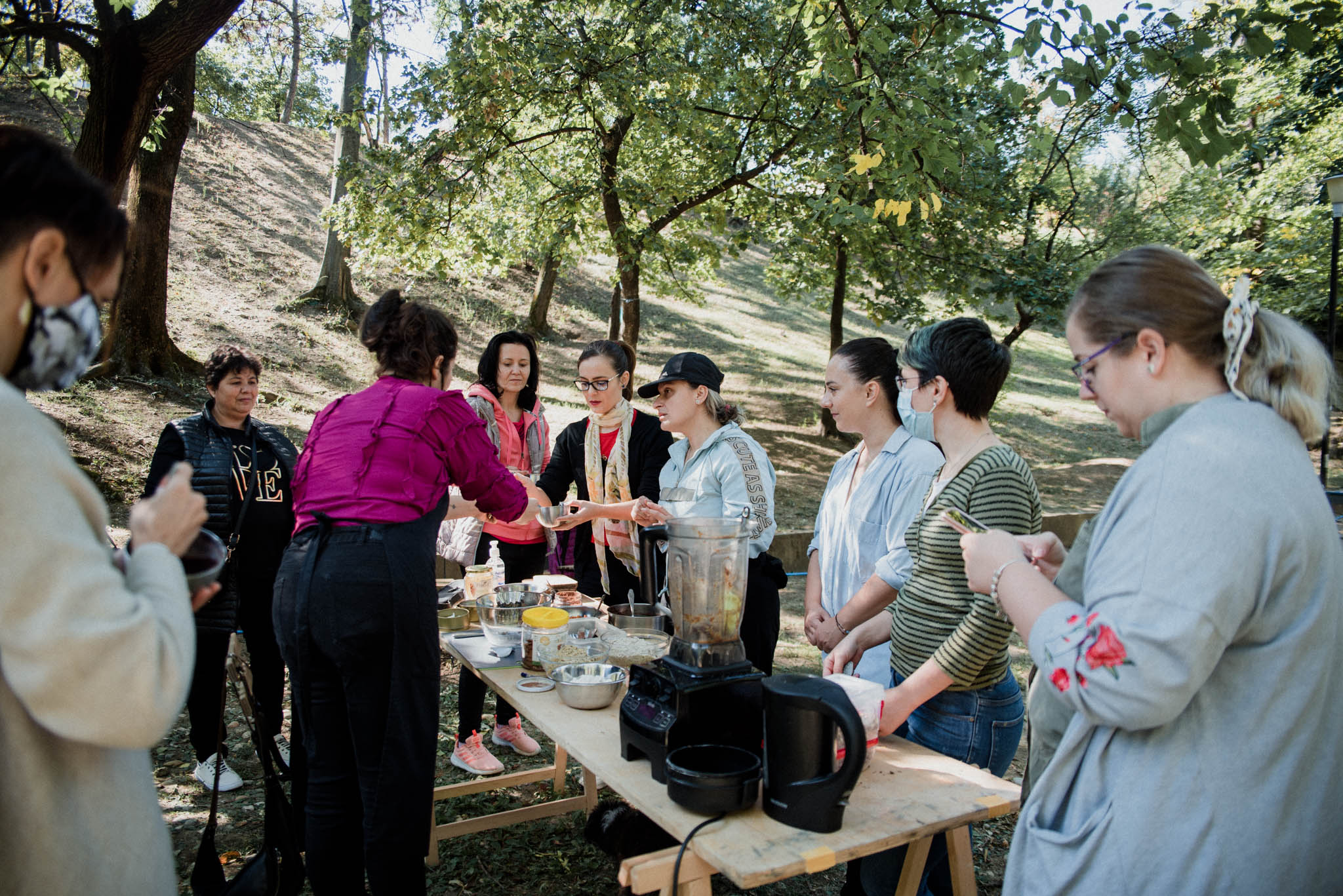
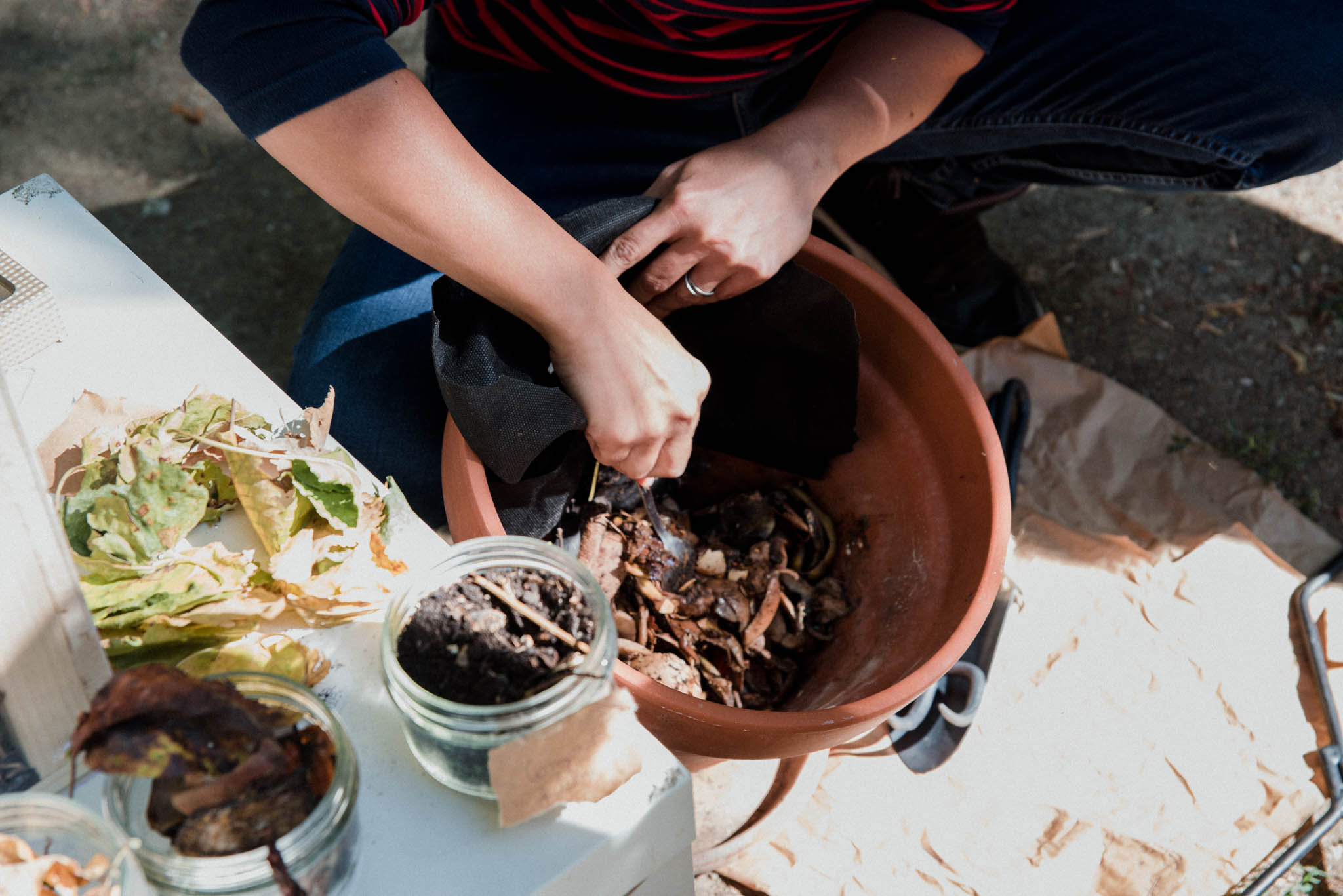
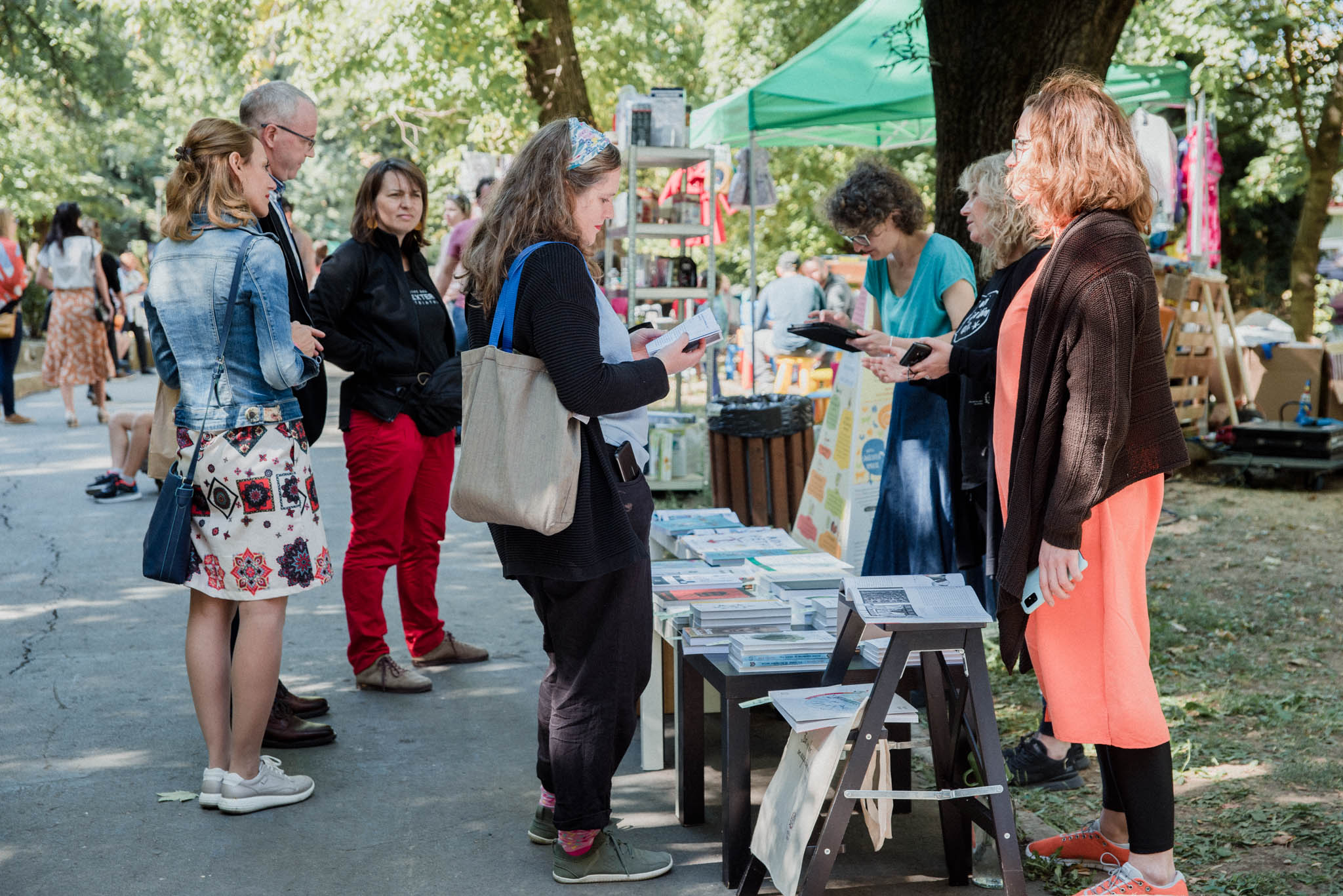
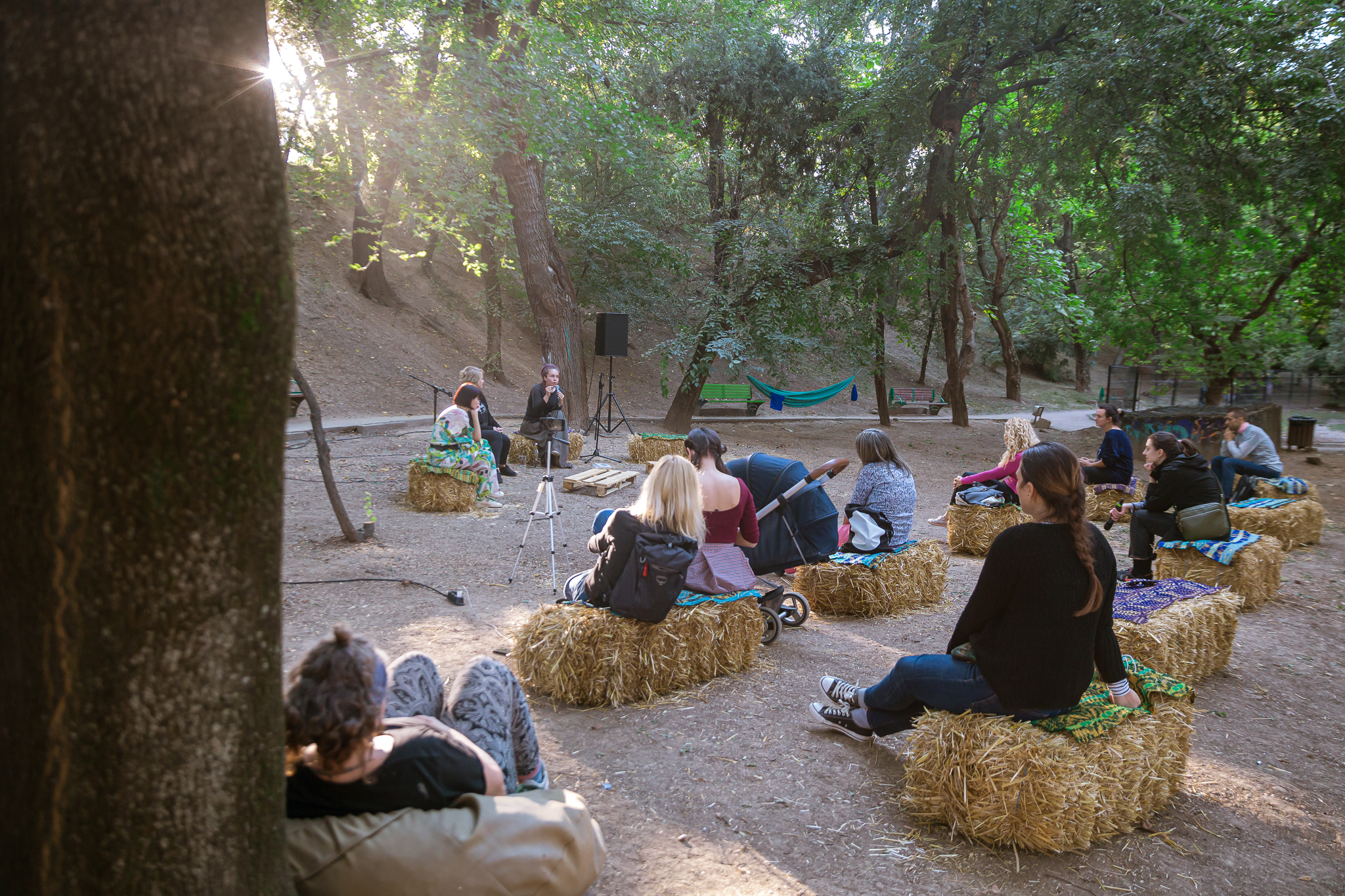
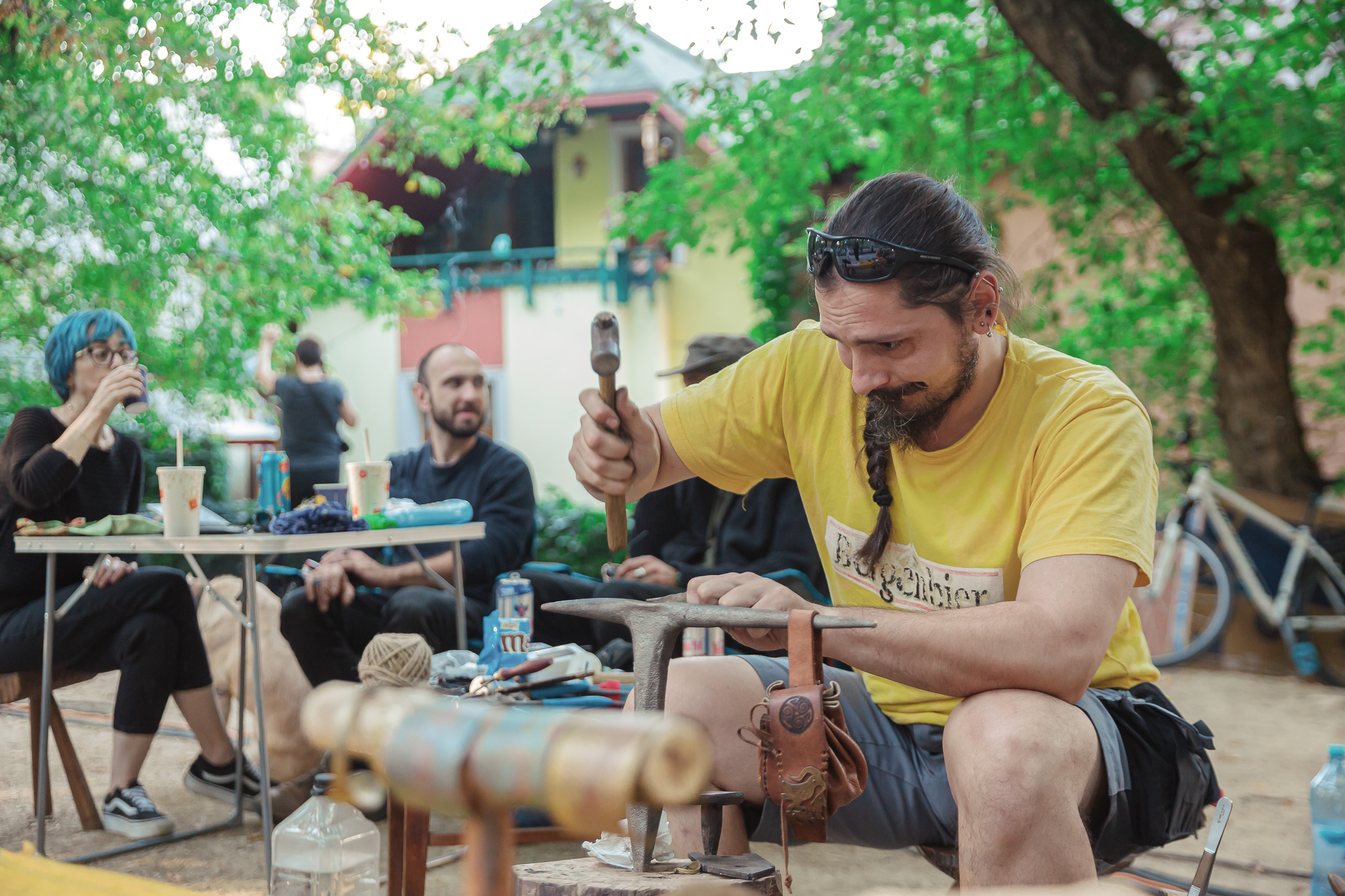
@Asociația pentru Consum Sustenabil (Sustainable Consumption Association), 2021
Content licensed to the European Union.